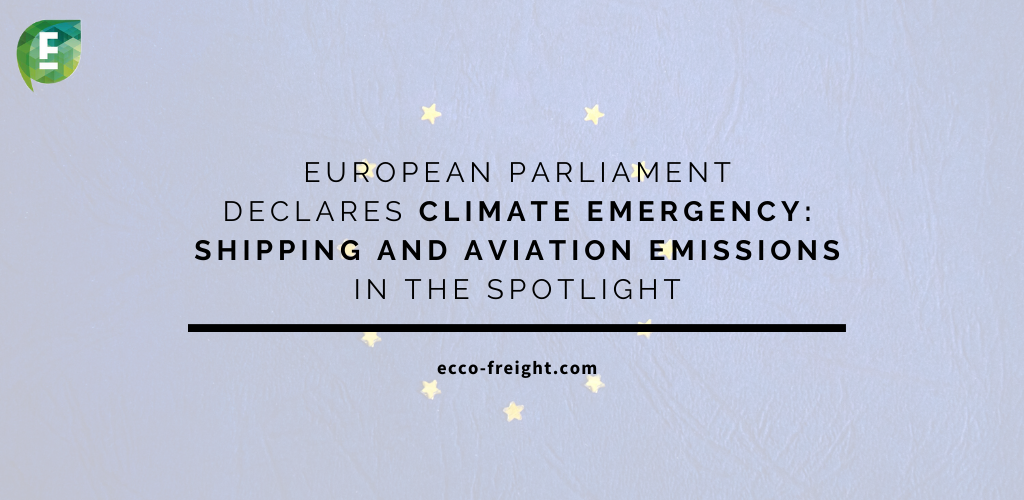The European Parliament declared climate emergency in a resolution adopted with 429 votes at the end of November.
In a detailed resolution that can be found on its official website, the EP highlights several key points to be addressed on the road to decarbonization, with maritime transport being one of the focuses of this agreement.
EC to promote initiatives to limit warming to 1.5°C
The European Parliament reminds the EC of the need to align its proposals with the objective of limiting warming to 1.5°C. As published by the IPCC in its Special Report on the impacts of 1.5°C global warming compared to pre-industrial levels and corresponding trajectories that global greenhouse gas emissions should follow, in the context of strengthening the global response to the threat of climate change, sustainable development and efforts to eradicate poverty, impacts on biodiversity and ecosystems, including species loss and extinction, are projected to be lower at 1.5°C global warming than at 2°C. If global warming is limited to 1.5°C instead of 2°C, impacts on terrestrial, coastal and freshwater ecosystems are projected to be lower and more ecosystem services for humans will be conserved (high confidence level). In addition, the report also states that “climate-related risks to health, food security, water supply, human security and economic growth are projected to increase with 1.5°C global warming and even more with 2°C global warming”.
The EU must reduce its emissions by 55% by 2030 to achieve neutrality by 2050
In a second resolution, the EP urged the EU to present its strategy for reducing emissions. The aim is to reduce emissions by 55% by 2030 in order to achieve neutrality by 2050.
Emissions from shipping and aviation must be significantly reduced
One of the points highlighted in this document is the need to further reduce emissions from shipping and aviation, which the EP considers to be currently unambitious. The House’s proposal is that countries should include these sectors in their national contribution plans and that the maritime sector should be included in the European emissions trading system.
Is cleaner shipping possible?
The need to act for a less polluting maritime industry is clear. Numerous regulations such as the limit on sulphur emissions, IMO 2020, as well as the 55% emission limit for 2030 proposed by the EU urge the sector to act immediately. Accounting for 2.5% of annual emissions at the European level, the maritime sector is facing necessary changes to move in the most sustainable direction for the planet. The search for new fuels is seen as one of the alternatives to reduce polluting emissions, along with the use of a gas cleaning system, the so-called “scrubbers”, which are responsible for cleaning up the gases before they are emitted into the atmosphere.
Sustainable forwarding with EccoFreight
If moving towards a more environmentally friendly logistics operation is among your New Year’s business resolutions, don’t hesitate to contact EccoFreight. We are pioneers in the use of the most advanced technology to measure, reduce and offset the emissions derived from the transportation of our customers’ freight. We are moving towards a less polluting logistics industry.






